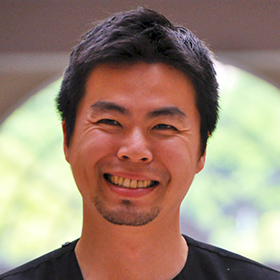The day as hot as marking the beginning of summer, held was the fourth lecture of the Global Career Lecture Series. The lecturer who appeared barefoot in traditional Afghanistan fashion was Masayoshi Mita, who worked at Secretariat of the International Peace Cooperation Headquarters, Cabinet Office.
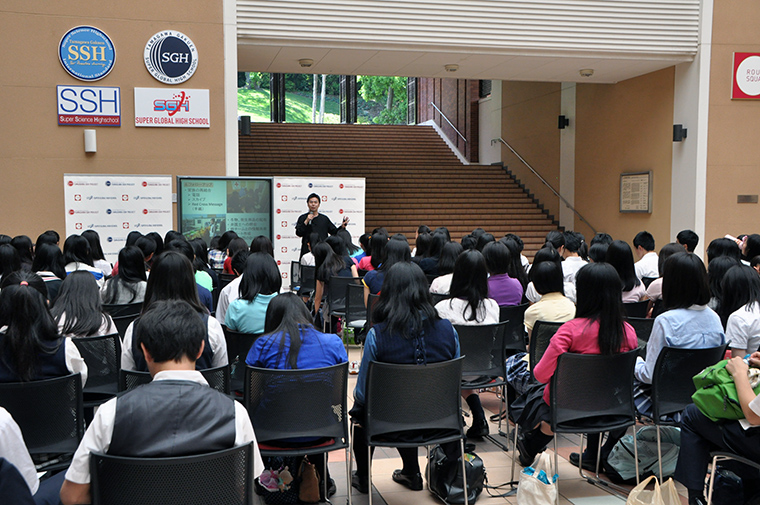
Mr. Mita talked mainly about humanitarian aid activities in prison that he was involved in as an international humanitarian aid worker from the International Committee of the Red Cross (ICRC).
As at lunch break, Mr. Mita said, caring about the audience, “I’m going to tell a lot of sad stories, but I’ll take care not to lose your appetite,” and such his demeanor gave an impression that he was always paying attention to others and surroundings.
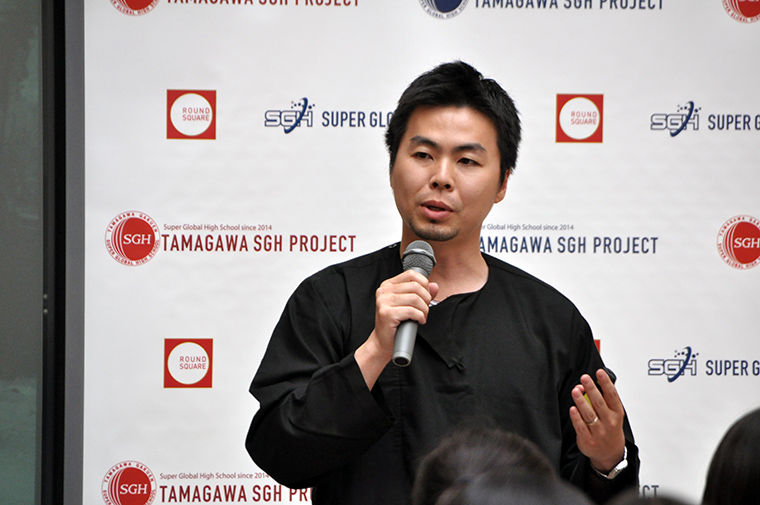
After introducing himself, Mr. Mita talked about his work and what humanitarian aid is in the first place. “In conflict zones there are a lot of people who were arrested for arbitrary reasons and who are experiencing shocking treatment in prison. My work was ‘to be there’ for the conflict-afffected people,” he said.
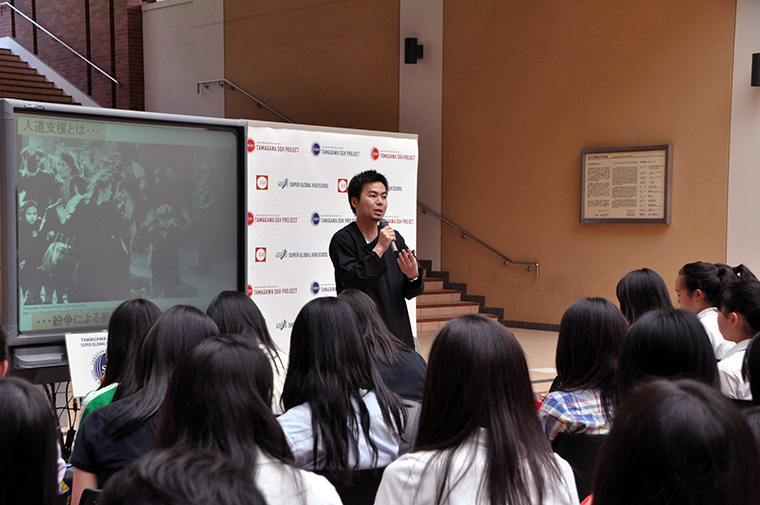
“‘To be there’ is to think in the other person’s point of view and mind, to empathize with them, and to treat them with respect, I think,” said Mr. Mita. Then, he told about an episode in a train that had made him think again about his conviction. As listening to the episode that could happen close to them, the audience realized that “humanitarian aid” can be provided not only within specific areas but anywhere, and there is something they can do on their own.
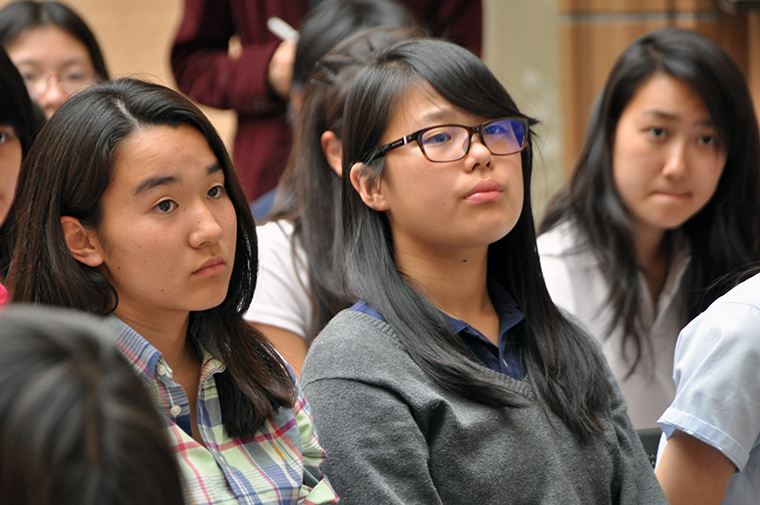
Mr. Mita described humanitarian aid work in prison step by step. The important thing is to have conversations with detainees: “Can you contact your family?” “Do you have adequate food?” “Don’t you suffer inhumane treatment like violence?” As asking them such questions, he thought what he could do for them, and put it into action.
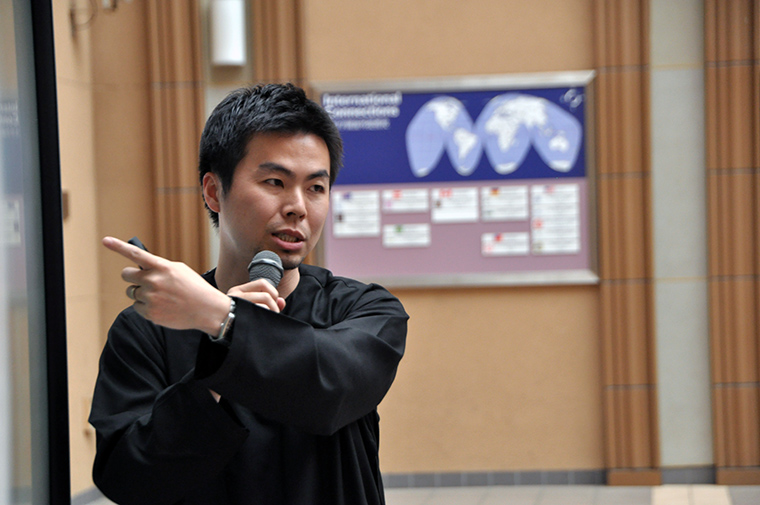
When Mr. Mita found the detainees were in an unsound environment, he talked to and urged the warden to improve the environment. Occasionally, at detainees’ request he looked for their family and brought them into contact on the phone. When a detainee could meet his family for the first time in five years, Mr. Mita was moved to tears.
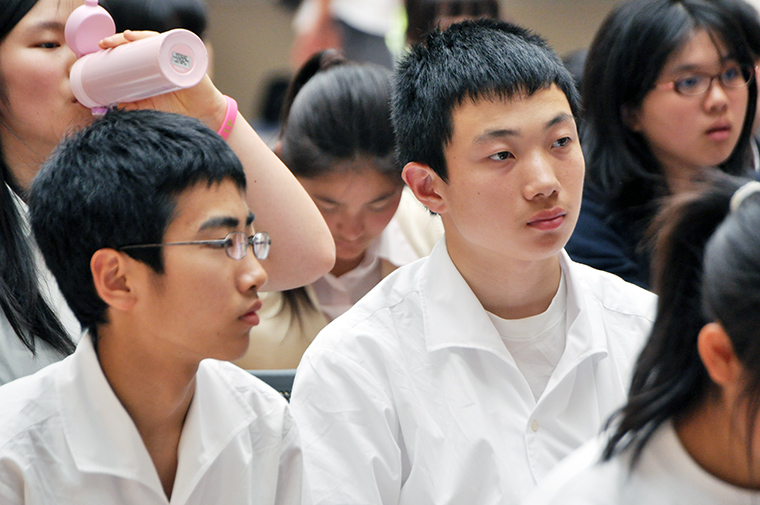
The ICRC working on a wide variety of activities in the front lines of conflict zones doesn’t publicly disclose detailed documents on their activities. This is because by unveiling its reports, there is a possibility that the staff would be refused to enter the places where they were allowed to until then, and wouldn’t be able to help local people who really need help. Then, the audience felt empathy toward Mr. Mita who had the belief that guaranteeing his own security is also important in helping people who are waiting for the staff’s help.
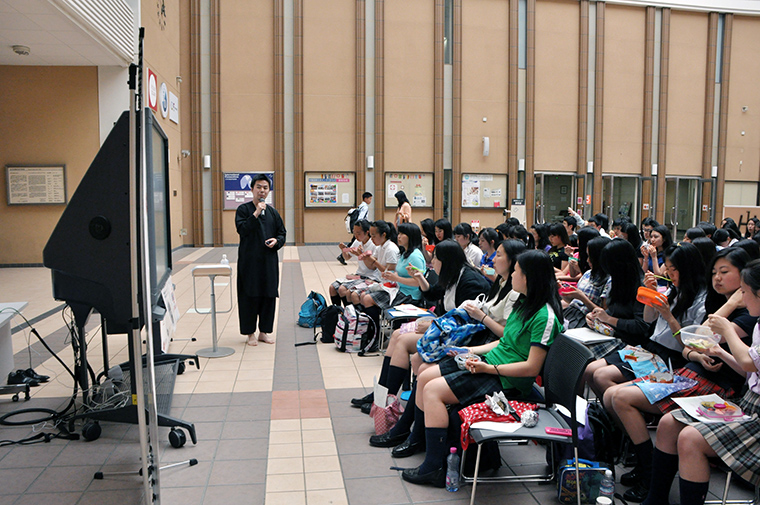
Then, the audience who were earnestly listening to Mr. Mita’s experiences gained deep understanding of “what humanitarian aid is.”
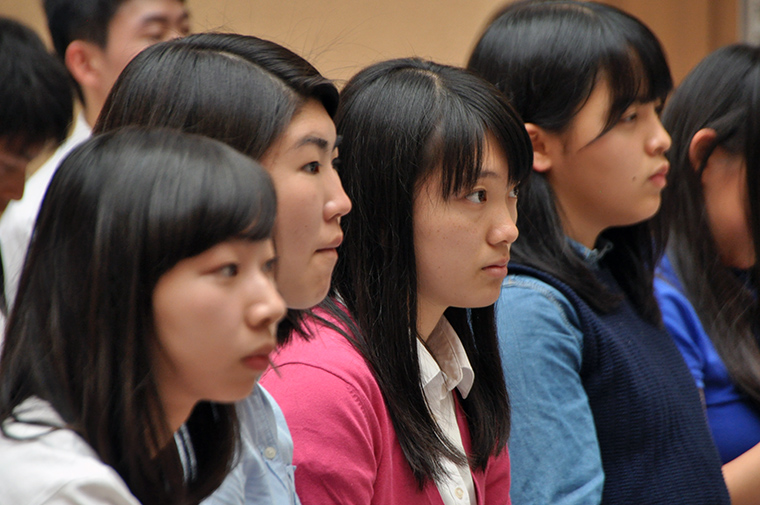
Mr. Mita concluded by giving a message, “Don’t just finish by knowing, but take action actively.” After his speech, the audience threw questions that showed their desire to know specific action for themselves: “What did you do on the overseas internship?” “To work for an international institution, do we need to take a master’s degree?”
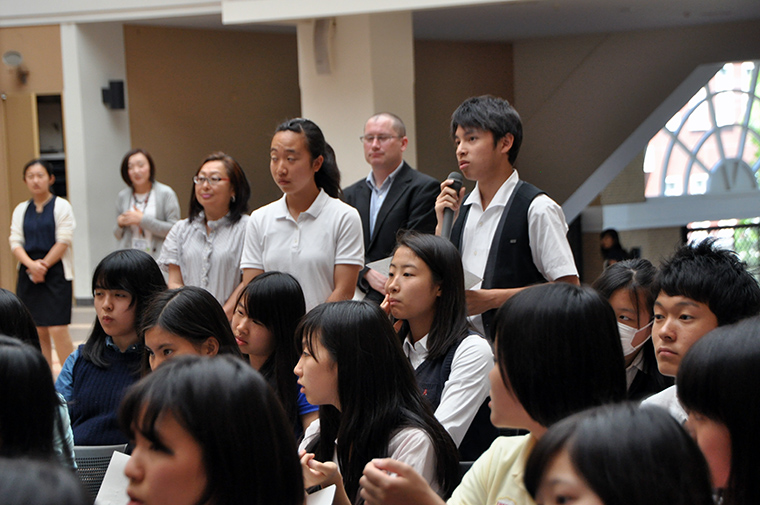
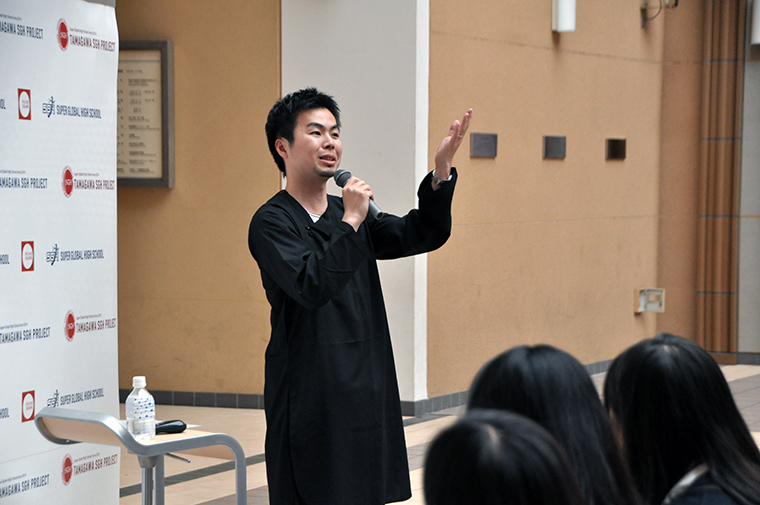
There are people who are working in different capacities and on various missions in the world, and they are helping people in need of whom we are not aware. Mr. Mita’s speech inspired the audience to “think about others and actively take action for them.”




